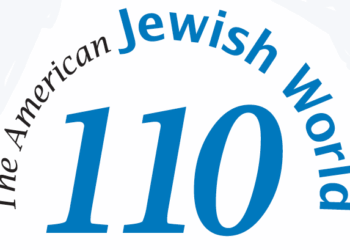The American Jewish World is being buffeted by the global economic crisis. The journal of Minnesota’s Jewish community must adjust to what appears to be a long-term downturn in the advertising environment.
In order to continue to best serve our readers with a quality newspaper, the AJW will move to biweekly publication in May.
The new biweekly edition of the newspaper — which will publish May 1, 15 and 29 — will be a more substantial paper, with increased coverage of current affairs, culture and the arts. We will have more time between publishing cycles, which will allow for better coordination with all of the synagogues, agencies and Jewish groups in the community.
We will repeat this message over the coming weeks, so that all of our readers and advertisers can adjust their publicity plans to the new publishing schedule.
Also, the Jewish World offices will be closed on every other Friday. The closings will occur on each publication date.
We understand that most readers look forward to receiving the Jewish World each week. We sincerely hope that there will be the same anticipation of our biweekly publication. Again, we plan to pack more into each edition of the newspaper — there will be more to read and consider.
This decision has come after a long period of deliberation by the board of Minnesota Jewish Media, LLC, the AJW’s parent company. The company was formed three years ago to purchase the assets of AJW Publishing, Rabbi Liebhaber’s company. Those who invested in Minnesota Jewish Media did not do so to get rich quick; rather, they became members of the company in order to ensure that there would be an independent Jewish newspaper in Minnesota.
With a new local ownership group, the Jewish World has seen improvements in a number of areas, which have generally met with popular approval. We are now publishing a handy directory of Jewish resources in Minnesota, the AJW Community Guide. Also, since last November, there is a Web site (ajwnews.com), which allows us to update the news between editions of the print publication, and to share some of the newspaper with readers in far-flung locales.
As we mentioned last week, the success of the newspaper is really in the hands of the readers, of those who hold it in esteem. We encourage our readers to submit story ideas. We want to hear your ideas about how we can improve our coverage of people and events in the community.
Also, if you are a business owner, or know someone with a business, the American Jewish World occupies a unique niche — we are the portal to the local Jewish community. All of the synagogues, Jewish schools, agencies and organizations know that the way to publicize an event of interest to the Jewish community is through the Jewish World. Likewise, if someone wants to reach an affluent, active and aware segment of the larger community, they should consider placing their advertising in this newspaper.
The demise of great newspapers across the country is a disturbing phenomenon. Most of our readers know that the Star Tribune is in bankruptcy, along with many other big city papers, and that the daily newspapers in Seattle and Denver have recently shuttered.
Hard times for newspapers threaten to undermine our democracy, which requires a functioning Fourth Estate to oversee the actions of the rulers and corporate chieftains. This point was made at the March 10 Great Conversations forum at the University of Minnesota, by famed investigate reporter Seymour Hersh. He pointed out that investigative reporting is expensive, and in this era of newsroom budget-cutting, journalists with the means to report on stories in depth are on the endangered species list. Hersh, of course, won the 1970 Pulitzer Prize for uncovering the My Lai massacre during the Vietnam War (3-6-09 AJW).
As Eric Alterman writes in his recent column in The Nation, we are missing “neither the need for newspapers nor the desire for the services they provide. Rather, it’s a way to make money from them.” Alterman points out that the New York Times, for example, “enjoys many times as many readers on the web as it ever did in print.” He goes on to make Hersh’s point about how the economic downturn is forcing papers to prune away the “genuinely important parts” — the investigative journalists who are the “society’s most important source of information and accountability.”
As the United States government faces the challenge of two foreign wars and an economic crisis that shows no signs of abating, the role of newspapers becomes more important. While the Jewish World never had a large staff of reporters, we try to be a responsible newspaper and provide our readers with a breadth of reportage and opinion articles. Sometimes readers do not agree with the editorial choices we make, but we allow our critics to gainsay our decisions in these pages. We try to foster a respectful debate on issues of concern to the community.
The decision to publish on a biweekly basis is intended to strengthen our newspaper business. We want to continue to serve the Jewish community, as we move toward our 100th year of publication. We believe that we serve a vital purpose and we welcome your feedback about all aspects of the Jewish World.
— Mordecai Specktor /Â editor@ajwnews.com


















